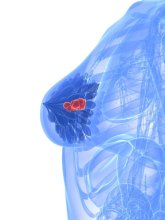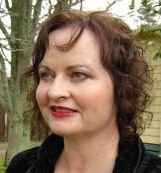Latest News

The deeper researchers dive into the genetics of breast cancer, the more complicated their discoveries. And the latest, and deepest, dive is no exception.
The SOLE trial, involving 4,800 women worldwide, aims to determine whether taking the hormonal drug letrozole for a prolonged period helps to prevent or delay breast cancer recurring.
Studies have already shown that using the drug Letrozole can help to slow or stop the growth of oestrogen sensitive breast cancers. Women usually take hormone therapy, such as Tamoxifen or Letrozole, for five years after surgery. However, there is still a risk of breast cancer returning after this time.
The aim of this study is to determine whether the risk of recurrence can be reduced further by taking Letrozole for a another five years.

New Zealand women are invited to participate in the LATER study, which looks at whether a particular drug can prevent breast cancer from recurring.
More than 1,700 post-menopausal women who have been treated with hormonal therapy for more than four years are invited to take part in this clinical trial run by the Australia New Zealand Breast Cancer Trials Group (ANZBCTG).
The study examines whether being given the drug Letrozole a year or more after completing hormonal therapy can prevent or delay breast cancer from recurring in postmenopausal women.

By Jenni Scarlet, Research Nurse, Breast Care Centre, Waikato Hospital, Hamilton
What is a clinical trial?
Clinical trials are research studies where a new treatment is tested against a best available or standard treatment. Clinical trials involve people working with research staff (including doctors and nurses) to help find ways to improve health and care of people with diseases such as breast or other cancer.
In cancer care, a clinical trial is one of the last stages of a lengthy and careful process that often starts many years earlier in a laboratory. Trials are a link between discoveries made in the cancer research laboratory and making new treatments available for people diagnosed with cancer.
Women at increased risk of developing breast cancer are needed to participate in a clinical trial which aims to identify a drug to help prevent the disease.
The IBIS-II trial is being run by the Australia New Zealand Breast Cancer Trials Group and Cancer Research UK and focuses on the drugs Anastrozole and Tamoxifen and whether they are beneficial in helping to prevent breast cancer.
Waikato breast surgeon, Associate Professor Ian Campbell, says around 6000 New Zealand, Australian and British women are needed to participate in the study.
BCAC committee member, Dr Chris Walsh, received a New Zealand Order of Merit for services to women’s health in the New Year’s Honours 2010.
On this page you'll find out more about a condition known as lymphoedema, which can be a side-effect of breast cancer surgery.
Below you'll find information on:

BCAC member group, WONS, is holding a Women's Health Expo on 2 July, 2011 at CCS Disability Action, 14 Erson Ave, Royal Oak.
The topics covered during the one-day expo include:
- Complementary therapies for depression (Professor Shaun Holt)
- Survivorship, Post-breast cancer treatment (Geraldine Meechan)
- Breast Health (Dr Wayne Jones)
To register visit www.wons.org.nz, call (09) 846 7886 ext 0, or email admin@wons.org.nz
Maori women have had the highest rates and the largest increase in breast cancer over the last two decades according to new research from the University of Otago, Wellington.
The difference between Maori rates, and that of European/Other women, increased from 7% in the period 1981-86, to 24% in 2001-2004; with Maori women's breast cancer rate increasing from 123 to 210 per 100,000 women.
However the research, led by Dr Ruth Cunningham from the Department of Public Health, says the reasons for the unusually higher Maori rates are still unclear, as
internationally breast cancer rates are usually highest among those with higher incomes.

My name is Jude and I am a 53 year old wife, mother to 3 boys, and registered nurse who works in the field of oncology.



